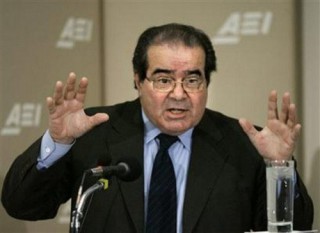Texas
Austin Texas Police Release Video Of Alleged Anti-Gay Assault Hoping For Public Assistance In Finding Suspect
AUSTIN, TX -- Police investigators in the Texas capital city Friday released surveillance video which shows a violent attack on two men in the city’s downtown that occurred during Gay Pride last month.
The victims, Nick Soret and Andrew Oppleman, believe they were attacked because of their sexual orientation. In the video, captured on a surveillance camera mounted on the Roppolo’s Pizza trailer located at Fourth and Colorado Streets, Soret is seen walking up to the counter and picking up a slice of pizza. A man to his side, wearing a baseball cap and glasses, then turns to Soret.
Within moments the man pushes the pizza out of Soret’s hand. Seconds later Oppleman is seen stepping forward from the curb. The attacker then turns to Oppleman, punching him in the face. Oppleman starts to bleed. He lost several teeth in the punch, but the attack wasn't over. The assailant then turns and pummels Soret.
Austin Police spokesman, Corporal Anthony Hipolito, said that the owner of Roppolo’s Pizza trailer turned the the video over to detectives as evidence. “It’s crucial. The high quality security video shows the assault as plain as day. You can see it even though it is dark outside,” Hipolito said. “The assault was clear. You can see who this guy is.”
Another man who was with the suspect, Jin Young Park, was arrested and charged with public intoxication, however police can’t find him now because he moved out of his apartment and hasn't returned calls from detectives. Other witnesses nearby haven’t come forward.
Police describe the attacker as an Asian male in his late 20s or early 30s. Police describe him as about 6 feet tall with a muscular build. Anyone with information is asked to call Crime Stoppers at 472-TIPS.
Soret and Oppleman will be keynote speakers Saturday afternoon at an event called March Against Hate organized by a group called Get Equal Texas.
Several hundred people are expected to meet at Austin City Hall at 11:45 Saturday morning. They’ll march up Congress Avenue to the south steps of the State Capitol.
Police spokesman Hipolito also said investigators are working with the Travis County District Attorney’s Office trying to determine if the assaults are considered hate crimes because of the victims' sexual orientation.
WATCH Courtesy Of KVUE.com News Austin:
Washington D. C.
Supreme Court Justice Antonin Scalia: Ruling On Death Penalty & Sodomy Laws Is “Easy”
 |
| U. S. Supreme Court Justice Antonin Scalia |
WASHINGTON -- Noted conservative U. S. Supreme Court Justice Antonin Scalia told an audience at the Washington based American Enterprise Institute- during a recent signing for his new book, Reading Law: The Interpretation of Legal Texts-
[...] "it’s “easy” to render a verdict when you apply the words in the Constitution as they were intended by its framers:
“The death penalty? Give me a break. It’s easy,” Justice Scalia said. “Abortion? Absolutely easy. Nobody ever thought the Constitution prevented restrictions on abortion. Homosexual sodomy? Come on. For 200 years, it was criminal in every state.”
Scalia told the audience of several hundred that he considers himself a a "textualist," which he explained means that he applies the words in the Constitution as they were understood by the people who wrote and adopted them.
During the lengthy question and answer session, Justice Scalia contrasted his style of interpretation with that of a colleague who tries to be true to the values of the Constitution as he applies them to a changing world.
Scalia told the audience that the people should turn to their elected lawmakers, not judges, to advocate for abortion rights or an end to the death penalty. Or they should try to change the Constitution, although he noted that the Constitution makes changing it too hard by requiring 38 states to ratify an amendment for it to take effect.
"It is very difficult to adopt a constitutional amendment," Scalia said. He once calculated that less than 2 percent of the U.S. population, residing in the 13 least populous states, could stop an amendment, he said.
Scalia also emphatically denied that there's any dissension among the court's conservative justices in light of Chief Justice John Roberts' vote to uphold the president's health care law. [Scalia dissented from Roberts' opinion.]
"Look it, do not believe anything you read about the internal workings of the Supreme Court," he said. "It is either a lie because the press knows we won't respond — they can say whatever they like and we won't respond — or else it's based on information from someone who has violated his oath of confidentiality, that is to say, a non-reliable source.
So one way or another it is not worthy of belief." "We can disagree with one another on the law without taking it personally," he said.
On the issue of same-sex marriage equality, The High Court is now expected to discuss the topic after the presidential election, which would mean arguments would not take place until the spring.
Earlier last month, Justice Ruth Bader Ginsburg, one of the High Court's recognised progressives, told an audience at the University of Colorado in Boulder;
“I think it’s most likely that we will have that issue before the court toward the end of the current term."
The Court has several pending appeals they could choose to hear that deal in one way or another with same-sex marriage.
One set of cases looks at whether same-sex couples who are legally married can be deprived of a range of federal benefits that are available to heterosexual couples. Another case deals with California's constitutional amendment banning gay marriage and federal court rulings striking down the amendment. An Arizona case deals with a state law that revoked domestic partner benefits, making them available only to married couples. Arizona's constitution bans gay marriage.






















0 comments:
Post a Comment